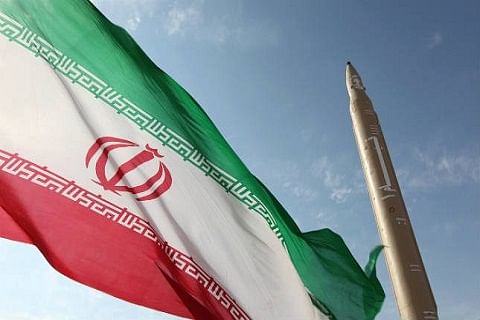New Delhi, Apr 15: Tehran has urged Western nations to acknowledge Iran’s restraint following its retaliation against Israel for an attack on its consulate in Damascus, Syria. Iranian Foreign Minister Hossein Amirabdollahian conveyed this message during a phone call with his German counterpart, emphasizing that the aim of the operation was not to cause significant damage to Israeli military installations but to send a clear message about Iran’s red lines.
The Supreme National Security Council of Iran warned that any direct response from Israel would be met with a counter-response ten times larger and stronger. Iran launched over 300 drones and missiles toward Israel, but Israeli officials reported intercepting approximately 99% of the barrage.
The Israeli military intercepted an unmanned aircraft that breached Israeli territory overnight. Israeli government spokesman David Mencer underscored Israel’s right to defend itself, emphasizing that Israel is not a war-seeking nation but is prepared to defend its people. The Iranian strike on Israel followed an attack on the Iranian consulate in Syria, which Iran attributed to Israel.
Iran’s Foreign Minister described the retaliatory strike against Israel as limited, targeting military installations rather than civilian areas. He stated that the operation aimed to punish the Israeli regime for its aggression against Iran’s diplomatic premises without targeting economic or population centres.
The Iranian government clarified to regional countries hosting US military bases that the operation’s sole purpose was to address the Israeli aggression and not to target American bases or personnel in the region.
Meanwhile, Israel’s military has presented a range of options for potential strikes against Iran, with the war cabinet deliberating on them. Media quoting sources emphasized the imperative for a response to Iran’s large-scale attack involving over 300 drones and missiles launched directly from Iran for the first time.
Some Israeli politicians advocate for a message to deter future actions from Iran, while others in the war cabinet highlight the opportunity to bolster the “strategic alliance” against the Iranian threat, leveraging support from the US, the UK, Jordan, and other allies in thwarting the attack.
Where this goes next from here depends in large part on how Israel decides to respond to last night’s attack. Several Countries including Western countries in the region and beyond have urged restraint.
India has voiced deep concern over the escalating tensions between Israel and Iran, warning of potential threats to regional peace and security. Minister of External Affairs, Dr S. Jaishankar, engaged in separate phone discussions with Iranian Foreign Minister H. Amirabdolahian and Israeli Foreign Minister Israel Katz to address the pressing issue.
During the conversations, Minister Jaishankar emphasized the urgent need for de-escalation and the cessation of violence, advocating for a return to diplomatic negotiations. He stressed the importance of exercising restraint and urged both parties to prioritize dialogue over confrontation. Minister Jaishankar agreed to maintain communication to address the evolving situation in the region with both leaders.







